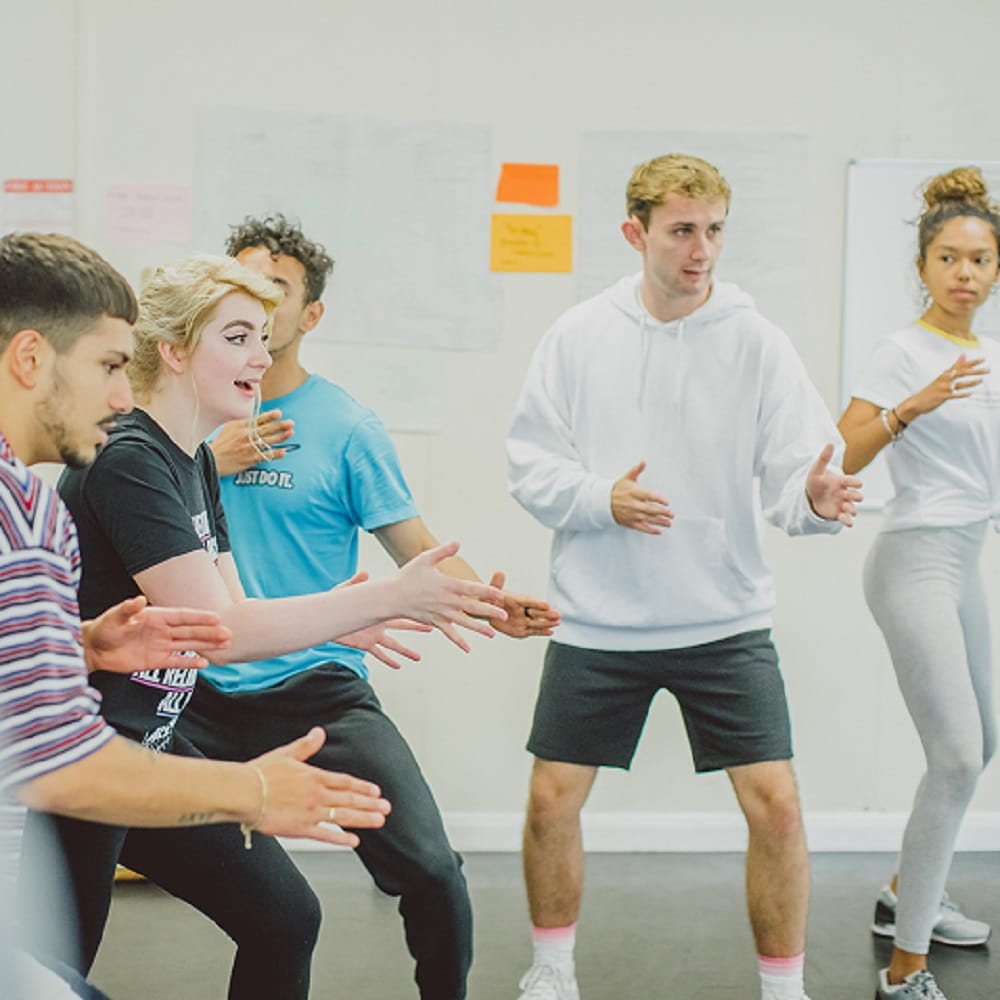East 15 Acting School's MFA Theatre Directing is designed for practicing or aspiring directors seeking to establish themselves as professional theatre directors.
The course brings together a diverse mix of emerging theatre directors from the UK and around the world, under the guidance of experienced directors and professional practitioners from the UK and overseas. With strong ties to the London theatre world, you'll have access to top-tier training as well as invaluable professional networks needed to build a successful career in directing theatre.
The MFA is a two-year, full-time programme, running over 24 months. You'll undertake eight modules over six consecutive terms, followed by independent study which results in a fully resourced practical project at one of East 15's theatre performance spaces or a London theatre venue (or alternatively, your MFA Dissertation).
We offer seven to eight modules each year, of which you'll be able to choose eight. While the menu of modules varies from year to year, they cover a diverse range of directorial practices such as Shakespeare, Contemporary British Drama, Comedy, Musical Theatre and Opera, Physical Theatre, and much more.
We also run some modules overseas, most recently in Poland with the legendary Song of the Goat Theatre Company, and in Bali, involving specialist practical study in an alternative cultural environment.
Some of the highlights of this course include:
- A unique modular structure, enabling you to tailor your training to discover your own artistic voice as a theatre director.
- International module options in Bali and Poland.
- Final dissertation production project fully supported by a creative team of professional theatre artists and technicians.
- Regularly direct work with actors from our acting courses, including BA Acting, BA Acting (International), MA Acting and MFA Acting (International)
- Facilitated opportunities to connect with playwrights, designers, producers, stage managers and theatre technicians to build your creative network.
- Intensive practical training by leading professional directors in the UK.
- Daily sessions in the rehearsal studio, leading and participating in ensemble activity that is modelled on the daily practice of a working freelance theatre director.
- Opportunities to work on attachment with UK theatre companies and assistant direct in the West End or at London venues such as Hampstead Theatre, Soho Theatre, Park Theatre, Arcola Theatre, Watford Playhouse and Queens Theatre Hornchurch.
- Professional preparation sessions guiding you in how to find work, how to self-produce, and how to create your own artistic opportunities as a freelance theatre-maker
- Be a part of the largest and most established professional theatre directing programme in Europe.
Visiting artists and guest workshop leaders in the past three years have included internationally renowned artists such as:
- Thomas Ostermeier
- Mike Leigh
- Yael Farber
- Bijan Sheibani
- Rufus Norris
- Robert Icke
- John McGrath
- Grzegorz Bral
- Philip Ridley
- Lyndsey Turner
- Ultz
- Sally Cookson
- Practitioners from the UK’s leading companies such as Punchdrunk, Complicite, Gecko and Mischief Theatre.
MFA Theatre Directing is open to applicants with a background in theatre directing or related fields, and is specifically tailored to those seeking professional development in this area. Study is full-time, but some modules enable time away to pursue professional theatre work.
This course is taught at our picturesque Loughton Campus.
View more Masters courses from East 15 Acting School.







